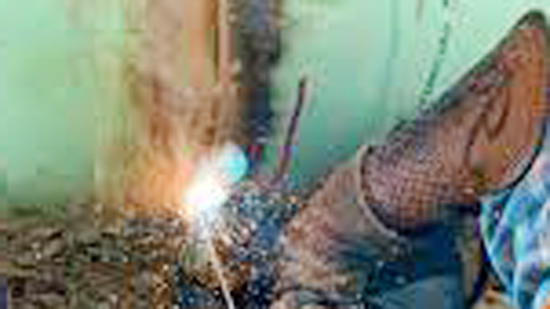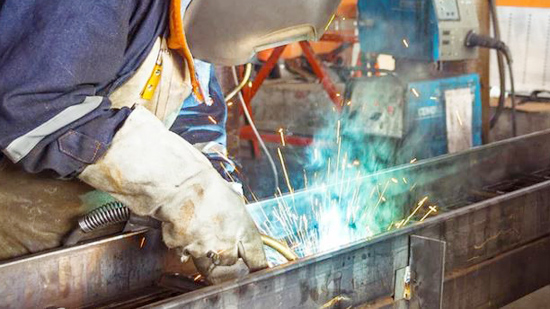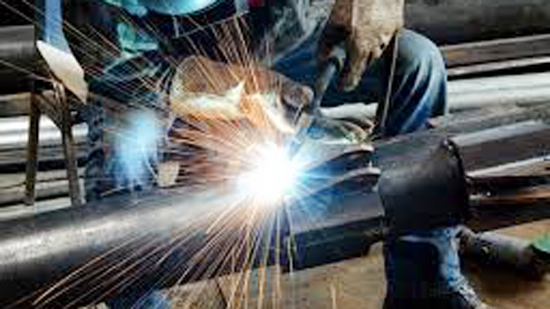A pipeline welder’s salary can range from $50,000 to $100,000 per year based on experience and location. Pipeline welding is a specialized skill that involves joining metal pipes to construct pipelines for various industries such as oil and gas.
Welders in this field are in high demand due to the critical nature of their work and the specific expertise required. Salaries can vary depending on factors like certifications, project complexity, and employer. In addition to a competitive salary, pipeline welders often receive benefits such as insurance and retirement plans.
As the demand for energy infrastructure continues to grow, pipeline welders can expect stable job prospects and potential for career advancement.

Image by yasaracarfenlisesi
Introduction of Pipeline Welding
Career Prospects In Pipeline Welding
Pipeline welding offers promising career prospects for individuals skilled in welding and interested in working in the oil and gas industry. This specialized field demands expertise and offers a unique opportunity to work on large-scale infrastructure projects, ensuring a steady demand for qualified professionals.
Key Responsibilities Of Pipeline Welders
Pipeline welders are responsible for joining metal components to construct and maintain pipelines. Their key duties include interpreting blueprints, operating welding equipment, and ensuring the integrity of the welded joints. Additionally, pipeline welders must adhere to safety protocols and quality standards to deliver durable and reliable pipelines.
Factors Influencing Pipeline Welders’ Salaries
Experience And Skill Level: Pipeline welders with extensive experience and advanced skills command higher salaries.
Geographical Location: The location where a pipeline welder works plays a significant role in determining their salary.
Industry Demands: Industry demands for pipeline welders can impact the salary range they receive.
Salary Comparisons In The Welding Industry
Pipeline welders’ salaries can vary depending on the industry they work in and their level of experience. However, on average, a pipeline welder can earn anywhere from $50,000 to $100,000 per year.
When it comes to the welding industry, salary comparisons are an essential aspect to consider. Different welding professions offer varying levels of compensation based on factors such as job requirements, experience, and certifications. In this section, we will delve into the salary comparisons between pipeline welding and other welding professions, as well as the impact of certifications on earnings.
Pipeline Welding Vs. Other Welding Professions
When comparing pipeline welding to other welding professions, it is important to note that pipeline welders often earn higher salaries due to the demanding nature of their work. The specialized skill set required for pipeline welding, combined with the challenging working conditions, contributes to higher compensation levels.
On the other hand, other welding professions such as structural welding or sheet metal welding may offer lower salaries in comparison.
Impact Of Certifications On Earnings
Certifications play a crucial role in determining the earnings of welders across various professions. Welders who hold relevant certifications often have an advantage in terms of job opportunities and higher pay rates.
Certifications such as Certified Welding Inspector (CWI), Certified Welding Educator (CWE), or American Welding Society (AWS) certifications can significantly impact a welder’s earning potential.
- Welders with advanced certifications and specialized training may command higher salaries compared to those without certifications.
- Certifications not only validate a welder’s skills but also demonstrate their commitment to the profession, making them more desirable to employers.
- Employers often prioritize certified welders for projects that require specific industry standards or compliance.
Therefore, investing time and effort in obtaining relevant certifications can prove to be a wise decision for welders aiming to enhance their earning potential and advance their careers within the welding industry.
Salary Trends Over Time
A pipeline welder’s salary has shown a steady increase over time, reflecting the high demand for their specialized skills in the construction and energy sectors. With experience, certification, and location playing key roles, pipeline welders can expect to earn competitive wages that often exceed the national average for welders.
Historical Salary Data For Pipeline Welders
Pipeline welding is a specialized field that requires skilled professionals to join and repair metal pipelines used in various industries. As with any profession, understanding the salary trends over time can provide valuable insights for those considering a career in pipeline welding.
Historical salary data for pipeline welders reveals interesting patterns and fluctuations. In the past decade, the average annual salary for pipeline welders has seen a steady increase. According to the Bureau of Labor Statistics, in 2010, the average annual salary for a pipeline welder was around $50,000. However, by 2020, this figure had risen to approximately $65,000.
| Year | Average Annual Salary |
|---|---|
| 2010 | $50,000 |
| 2011 | $52,000 |
| 2012 | $55,000 |
| 2013 | $57,000 |
| 2014 | $60,000 |
| 2015 | $62,000 |
| 2016 | $63,000 |
| 2017 | $64,000 |
| 2018 | $65,000 |
| 2019 | $65,000 |
| 2020 | $65,000 |
Predictions For Future Salary Trends
Looking ahead, predictions for future salary trends in pipeline welding are optimistic. With the increasing demand for energy and infrastructure projects, pipeline welders are expected to benefit from a steady rise in salaries. The need for skilled professionals in pipeline construction and maintenance will continue to drive the demand for qualified welders.
Advancements in technology and welding techniques may also contribute to higher salary prospects for pipeline welders. The ability to work with automated welding systems and specialized equipment can enhance a welder’s earning potential.
- The demand for pipeline welders is projected to increase by 8% over the next decade.
- Advancements in pipeline welding technology may lead to higher salaries.
- Specialized skills, such as underwater welding, can provide additional earning opportunities.
- Continued investment in energy infrastructure will drive the demand for pipeline welders.
Considering these factors, aspiring pipeline welders can anticipate a promising future in terms of salary growth and job opportunities. By staying updated with industry trends and acquiring relevant skills, individuals can position themselves for a rewarding and well-compensated career in pipeline welding.
Unions In Salary Negotiations
Unions play a vital role in negotiating pipeline welders’ salaries, ensuring fair compensation for their specialized skills. Welders’ earnings can vary based on experience, certifications, and project locations, with salaries typically ranging from $60,000 to $100,000 annually. Union representation can help welders secure competitive pay rates and benefits within the industry.
Union Vs Non-union Pipeline Welder Salaries
The Role of Unions in Salary Negotiations Union pipeline welders typically earn higher wages compared to non-union workers. Unions negotiate collective bargaining agreements to secure fair pay rates. Collective bargaining ensures standardized salaries across the industry. The union sets minimum wage requirements for pipeline welders. Non-union workers may have varying pay scales based on employer discretion.
Benefits Of Union Membership
Union members enjoy job security through collective representation. Unions provide healthcare benefits and retirement plans. Union workers receive training and certification opportunities. Membership grants access to legal assistance in workplace disputes. Unions advocate for safe working conditions and fair treatment.
Education And Training Investment
Investing in education and training for pipeline welding is essential for individuals looking to pursue a career in this field. The cost of welding education and the return on investment for specialized training are important factors to consider when evaluating the potential salary and career opportunities in this industry.
Cost Of Welding Education
The cost of welding education can vary depending on the type of program and institution. Community college welding programs may cost between $5,000 and $15,000, while private welding schools can range from $5,000 to $20,000. Apprenticeship programs, on the other hand, may be more affordable or even free for participants, as they typically involve on-the-job training and classroom instruction.
Return On Investment For Specialized Training
Specialized training in pipeline welding, such as obtaining certifications for specific welding processes and materials, can significantly enhance a welder’s earning potential. Investing in specialized training programs, such as those offered by the American Welding Society (AWS) or the Pipeline Contractors Association (PLCA), can cost between $500 and $2,000.
The return on investment for such training can be substantial, as welders with specialized skills and certifications often command higher salaries and have access to more lucrative job opportunities.
Freelancing And Contract Work
Pipeline welders are in high demand in the field of freelancing and contract work, with their salaries reflecting their specialized skills. The average salary for pipeline welders varies depending on factors such as experience, location, and project complexity. With competitive pay rates, pipeline welding offers a lucrative career path for skilled professionals.
As a pipeline welder, you have the option to work as a freelancer or a contractor. Freelance pipeline welding involves working for various clients on a project-by-project basis. On the other hand, contract work involves signing a contract with a company for a specific period of time. Let’s explore the pros and cons of each.
Pros And Cons Of Freelance Pipeline Welding
Pros:
- Flexibility in choosing projects and clients
- Opportunity to earn higher wages for specialized projects
- Ability to negotiate rates and work hours
Cons:
- Inconsistent workload and income
- No benefits or job security
- Responsibility for finding and maintaining clients
How Contracts Can Affect Income
When working as a contractor, your income is typically more stable and consistent. You are usually offered benefits such as health insurance, retirement plans, and paid time off. Your income may be lower compared to freelance work, and you may have less flexibility in choosing projects and work hours. Contracts can also affect your income in terms of bonuses and overtime pay.
Some contracts offer bonuses for completing projects ahead of schedule or meeting specific performance metrics. Others may offer overtime pay for working more than a certain number of hours per week. It’s important to weigh the pros and cons of both freelance and contract work to determine which option is best for you and your financial goals as a pipeline welder.
Real-life Salary Insights
Pipeline welders can earn a lucrative salary in real-life. Their average salary is determined by factors such as experience, location, and industry demand, making it an attractive career choice for those interested in welding.
Interviews With Experienced Pipeline Welders
Real-life salary insights from experienced pipeline welders provide valuable information about the earning potential in this field. Their firsthand accounts shed light on the factors that can impact a pipeline welder’s salary, such as location, experience, and specialization.
By hearing directly from those who have worked in the industry for years, aspiring welders can gain a realistic understanding of the financial rewards that come with this career.
Case Studies Of Successful Welding Careers
Examining case studies of successful welding careers offers a glimpse into the earning potential of pipeline welders. These real-life examples showcase the diverse paths that individuals have taken to achieve high-paying positions in the industry.
By delving into the specifics of these success stories, aspiring welders can gain valuable insights into the strategies and decisions that have led to lucrative opportunities within the field.
Navigating The Job Market
When it comes to pursuing a career as a pipeline welder, navigating the job market is crucial for securing a competitive salary and desirable benefits. Understanding how to find high-paying welding jobs and effectively negotiate salaries and benefits can make a significant difference in your earning potential and overall job satisfaction.
Finding High-paying Welding Jobs
Researching and identifying high-paying welding jobs is the first step in securing a lucrative career as a pipeline welder. Utilize online job boards, industry-specific websites, and networking opportunities to explore job openings with leading companies in the pipeline construction and maintenance sector. Look for positions that offer competitive compensation packages, including base salary, bonuses, and potential for career advancement.
Negotiating Salaries And Benefits
Once you have identified promising job opportunities, it’s essential to hone your negotiation skills to secure the best possible salary and benefits package. Research industry standards for pipeline welder salaries in your region and leverage this information during the negotiation process.
Consider the value of benefits such as health insurance, retirement plans, and paid time off, and be prepared to discuss these aspects during salary negotiations to ensure a comprehensive compensation package.
Conclusion
Pipeline welding is a highly skilled job that requires extensive training and experience. The salary of a pipeline welder varies depending on factors such as location, industry, and experience. It is generally a well-paying career with opportunities for growth and advancement.
As the demand for energy and infrastructure continues to increase, so does the need for pipeline welders. With the right skills and qualifications, this profession can offer a stable and rewarding career path.

I’m Darrell Julian, the founder, lead writer, and hands-on welding enthusiast behind ArcWeldingPro.com. With more than 15 years of real-world welding experience, I created this platform to share what I’ve learned in the field, in the shop, and in the heat of the arc.



